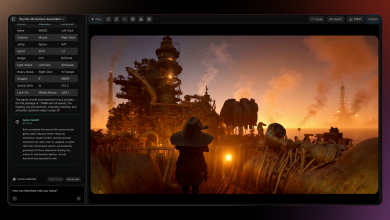If culture, as they say, is a way of life, then artificial intelligence has changed the narrative. Our way of life has improved since artificial intelligence technology became a part of our culture. The world as we knew it is no longer the same as the application of AI keeps making things easier, helping us humans get more tasks done in less time with a higher success rate.
From the healthcare sector to evolving trends in the education sector, even autonomous vehicles in the transportation industry have become a reality. All these and more are possible because of the pivotal role artificial intelligence plays in all of it. But the question remains, can they really be trusted?
The Beauty Within
One way to appreciate the beauty of artificial intelligence is to see it the way it truly is. We should never forget that technology is a computerized version of us, built to carry out tasks that we can’t do ourselves using big data and algorithms.
We encounter them every day, and sometimes, we don’t realize it. Its application varies from one industry or use case to another, from the more straightforward and easily relatable such as Siri, Google maps, Netflix to the more complex use in medicine for detecting cancer and other diseases accurately.
Self-driven cars are already a possibility as spearheaded by Tesla. With Facebook taking a deep dive into the metaverse, the future of social media is about to witness a paradigm shift.
AI is even more sophisticated in its use for military and defense purposes. They can be used to launch missiles at a specific location using drones or as a defense mechanism such as the Iron Dome.
In every use case of artificial intelligence, they serve as both enablers and assistants irrespective of the purpose or industry. The goal is always to get a task done with accuracy and at a faster rate.
Flipping the Coin
Like every other technology, artificial intelligence will always be viewed positively and negatively as there will always be questions waiting to be answered. The question of trust around artificial intelligence will always linger as most people find it challenging to understand the technology and how it works
Human trust is often based on our understanding of how others think and our experience with their reliability. It is a relationship between equals in which the trusted party is unsure about what he will do and believes that promises are made.
But with artificial intelligence, trust is not easy to come by. How are some of the decisions made? What happens when something goes wrong?
Some of the reasons why AI can’t be trusted include;
1. Transparency
While there are many advantages to what artificial intelligence can help us achieve, there is still the call for transparency and explainability because of how complex these systems are. Although, the use case varies from one industry to another as there will be less request for transparency. Suppose a system or software can detect cancer with 90% accuracy. You are most likely going to trust the result.
However, suppose artificial intelligence was used in the legal space to determine how long an offender is to be sentenced ten years in prison. In that case, you want to know how the decision was made.
2. Accountability
Accountability is another reason why AI is not getting all the trust it deserves. With autonomous cars now a possibility, who will be held accountable should there be cases of accidents? Will the manufacturers be held accountable or not?
For AI to be reliable, people must know that a person is responsible for their actions at one stage of the process. They should start with the accountability challenge.
3. Lack of emotion
Artificial intelligence may be a by-product of our knowledge and can carry out more tasks than we can. While they use deep learning, machine learning, big data, neural networks and other learning methods, they still don’t have that emotional side that only humans can exhibit. That relationship, empathy and compassion that leads to trust are lacking in artificial intelligence as they are predominantly logic-driven.
The Wrap-up
Just as we judge others before deciding how much to trust them, it seems fair to trust more in an AI system created, maintained, and protected in scientifically proven ways to improve outcomes for people. They may not always be trusted, but they’ll always be a part of us, helping us improve our way of life.




Hi Thomas – good point on transparency and accountability! I would also add a lack of an adequate legal framework to regulate AI and automated processes. Thank you!
What do you recommend?